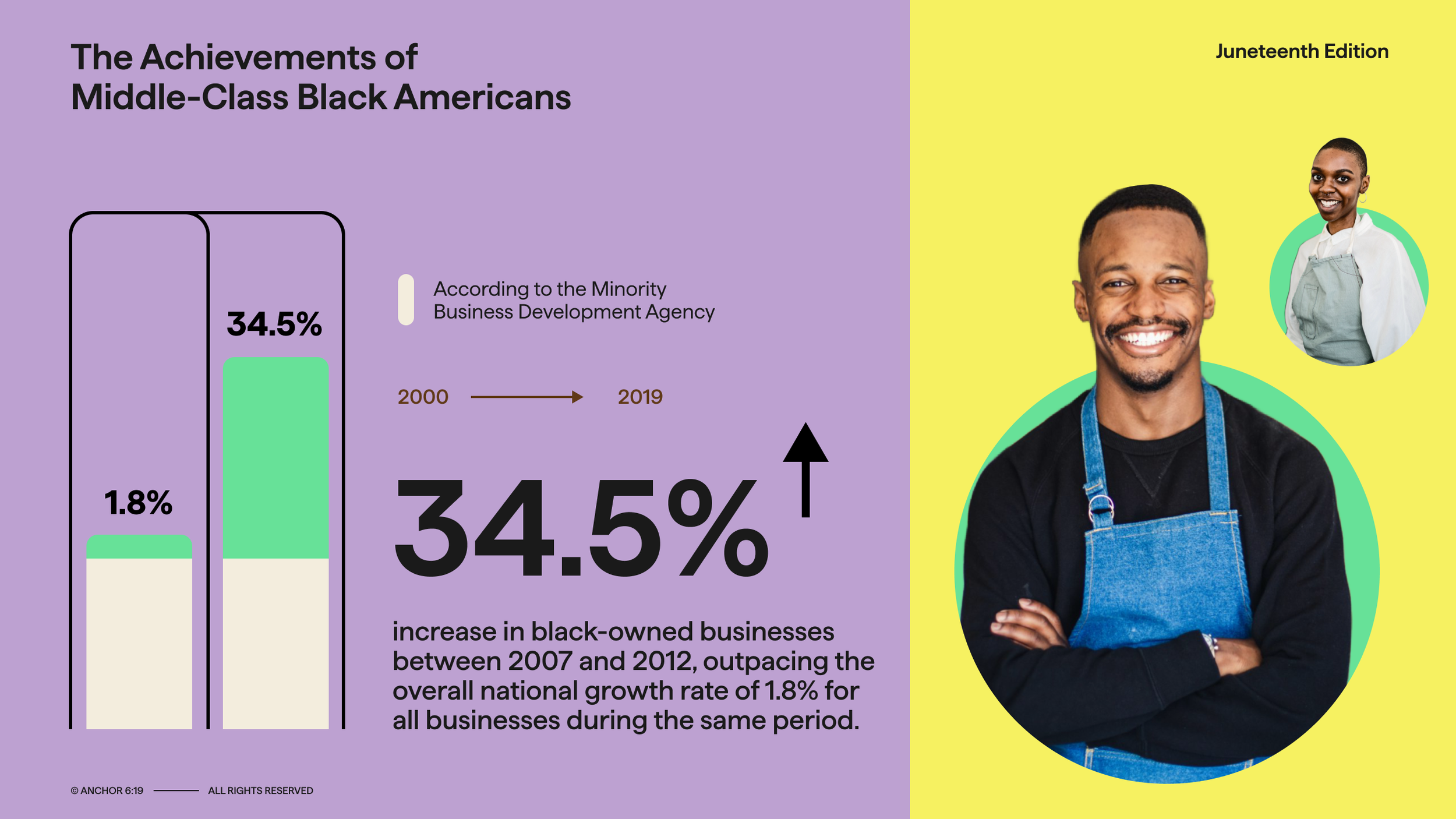Bridging the Gap: Juneteenth and the Paradox of Being a Middle-Class Black American
The Achievements of Middle-Class Black Americans:
Middle-class black Americans have undoubtedly achieved significant milestones over the years. Education is one area. Black individuals are receiving college degrees more than ever before. The National Center for Education Statistics reported that the percentage of black individuals aged 25 and older with a bachelor's degree or higher rose from 17.7% in 2000 to 25.9% in 2019.
And to top it off, the rise of black-owned businesses demonstrates the entrepreneurial spirit and economic contributions of the black middle class.
According to the Minority Business Development Agency, black-owned businesses increased by 34.5% between 2007 and 2012, outpacing the national growth rate. And I bet you’ve seen the effects of the small business boom due to the pandemic. Am I right?
Perceived Success and the Shutting Out of Opportunities
Despite these achievements, middle-class black Americans often face a unique set of challenges. One of the most significant is the burden of expectations and the stereotype that their success exempts them from racial bias and discrimination. Society often assumes that if you are doing well financially, you must be immune to the systemic barriers that continue to exist.
Unfortunately, this assumption does not align with reality. Middle-class black Americans, like myself, still encounter racial profiling, subtle forms of discrimination, and limited access to opportunities.
Recently, I participated in a pitch competition aimed at supporting local minority businesses. Despite my tech troubles, I presented with confidence and composure. At the end, I received one question that will stay with me forever, “It seems like you are doing well. Why are you here?”
My response: “Why wouldn’t I be here?”
The Consequences of Perceived Success
The perception of success can have damaging consequences for middle-class black Americans. They may face pressure to conform and downplay their cultural identity. The expectation that they should be grateful for their achievements can also lead to a dismissal of their concerns and need for support, further perpetuating the cycle of inequality.
And I can personally attest – the perception of financial stability can lead to isolation and the absence of a support system. The need to prove oneself repeatedly can be mentally and emotionally exhausting. Self-doubt can creep in quickly, “Will they see me as “black” enough to ask for help?”
A Call for Change and Greater Inclusion
While acknowledging the challenges, we have to keep an optimistic outlook. Juneteenth serves as a symbol of hope, reminding us that progress is possible. It calls upon us to address the discrepancies and create a more inclusive.
To bridge this gap, we have to address the systemic biases that perpetuate inequality at all levels. By dismantling barriers and providing support networks, we can create an environment that recognizes the achievements of middle-class black Americans while acknowledging the ongoing need for progress.
Juneteenth not only serves as a historical milestone but also prompts us to reflect on the challenges faced by middle-class black Americans today. The discrepancy between the perceived success and the reality of racial inequality brings visibility to the need for a collective effort to create lasting change.



